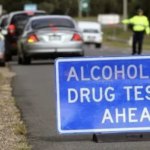Traffic Offender Programs in New South Wales

Traffic Offender Programs in New South Wales (TOPs) are education programs that are generally undertaken by drivers who have been charged with a ‘major traffic offence’ such as driving with a prescribed concentration of alcohol (or drink driving) or driving with an illicit substance present in the system (or drug drivng), or who have exceeded their demerit points twice within a five year period.
Benefits of undertaking a Traffic Offender Program
Those who undertake TOPs gain valuable insights into the potential impact of dangerous driving behaviour on other road users as well as the community as a whole.
The feedback received from drivers who complete the program is that is highly effective in changing their driving behaviour, so as to not only reduce the likelihood of future offending but also to keep all road users, including themselves, safe on our roads.
An additional benefit for those who intend to plead guilty to a major traffic offence is that a certificate of completion will be forwarded to the court, which will be taken into account by the presiding magistrate (in the Local Court) or judge (in the District Court) and can help lead to a more lenient penalty.
Having that certificate, as well as character references and a letter of apology before the court can even, in certain circumstances, result in drivers avoiding a criminal record, fine and licence disqualification altogether by helping to persuaded the court to use its discretion to make a ‘non-conviction order’, such as a section 10 dismissal or conditional release order without conviction.
Alternatively, it can help reduce the length of the disqualification and amount of any fine.
The Traffic Offender Intervention Program
The Traffic Offender Intervention Program (TOIP_ is considered to be one of the best traffic offender programs in New South Wales, and is delivered predominantly through the Police Citizens Youth Club organisation.
TOIP is a well-structured program that focuses heavily on participant driver behaviour – the habits and conduct behind the wheel that has got them into trouble with the law – and then it focuses on helping them to develop different skills to be safer on the roads.
Addressing poor driver behaviour
TOIP is now delivered through Zoom which makes it convenient to participate in from anywhere.
You can sit at a computer, a laptop, or even participate using a smartphone, rather than having to attend a physical location.
TOIP designed to be delivered in a short period of time, so you get the full benefit of learning quickly and easily.
It is a two-week course, delivered over two consecutive Saturday daytime sessions 0R two Tuesday and two Wednesday evening sessions.
The course is not self-service. Rather, it is hosted by participants, live via zoom, and gives participants the opportunity to ask questions and fully participate in the course information.
Course material includes:
- Legal aspects of driving and traffic offences.
- Drug and alcohol use and driving.
- Police perspective.
- Road safety.
- Emergency services perspective.
- Driving behaviour and speeding.
- Vehicle maintenance.
New courses start every week, which means you will most likely be able to complete one prior to your court date, without worrying about unnecessary postponements.
Your certificate of completion will be available immediately when you have finished the course.
For more information visit www.pcyctrafficoffenders.org.au or call 0482186246 or email -mwheeler@pcycnsw.org.au.
Seek professional advice
Of course, completing a Traffic Offender Program, writing a letter of apology to the court and obtaining character reference are important for those who wish to plead guilty to a major traffic offender, and drivers have the option of representing themselves in court.
However, engaging the services of a specialist traffic lawyer is important to several reasons and can maximise the prospects of a favourable outcome.
A lawyer will be able to advise you from the outset as to your options and the best way forward, whether that be a plea of not guilty or guilty.
He or she will, for example, be able to advise as to whether there are problems with the prosecution case such as any deficiencies and legal defences.
In the context of a drink driving case, such problems can include ‘unsafe reading’, the ‘two-hour rule’, the ‘home safely rule’ and legal defences such as honest and reasonable mistake of fact.
If such problems exist, your lawyer will be able to write to police formally requesting withdrawal of the charges on that basis.
If police refuse, your lawyer will fight to have the case dismissed in court.
If you intent to plead guilty, your lawyer will often be able to have charges downgraded and the police version of events (known as the ‘police facts’) amended in order to make the circumstances brought before the court less serious.
Your lawyer will guide and your referees (those who provide you with character references) on the preparation of materials such as your letter of apology and character references, as well as any other documents which might assist your cases such as medical or employment documents (especially where your job requires you to drive, or where you are required to drive others due to their conditions).
Crucially, an experienced traffic lawyer will pull all of these aspects together and present your case in court in a structured and persuasive manner, focusing on mitigating factors (features that courts may take into account to reduce a penalty) with a view to achieving the optimal outcome.
Call Sydney Criminal Lawyers
The specialist traffic defence team at Sydney Criminal Lawyers is vastly experienced in representing clients charged with major traffic offences and has an exceptional track record of achieving successful outcomes in courts across New South Wales.
Our lawyers will guide you every step of the way and ensure you receive the optimal outcome, whatever your alleged driving offence may be.
So call us today on (02) 9261 8881 and have Sydney’s best traffic defence team on your side.





